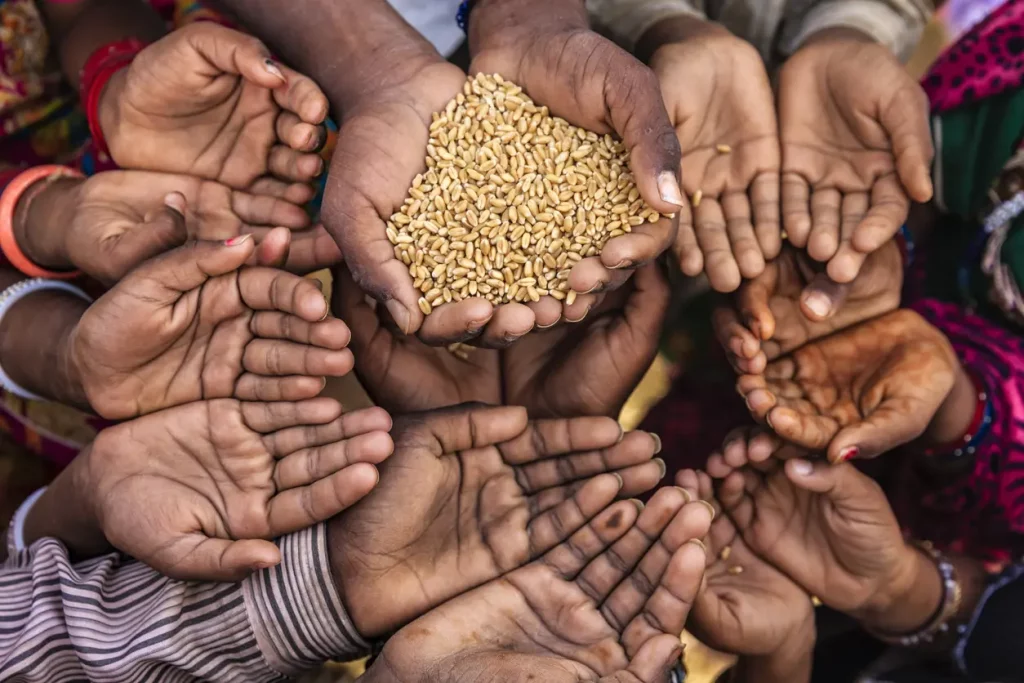Given Nigeria’s abundant arable land, which covers approximately 36.9 million hectares (equivalent to 40.48 percent of the country’s total land area as of 2021), and a youth population comprising 70 percent of the total (approximately 151 million youths), Nigerians should have no reason to be hungry. The potential for agricultural productivity and food security is immense, and with the strategic utilisation of these resources, hunger can be effectively addressed.
Regrettably, hunger remains a pressing issue within the nation. According to the recently published 2023 Global Hunger Index (GHI), Nigeria holds the 109th position out of 125 countries, with a GHI score of 28.3 percent. This score places Nigeria among the countries experiencing serious hunger. In fact, Nigeria ranks as the 16th most food-insecure country globally amongst countries with sufficient data to calculate the 2023 GHI scores.
Nigeria was ranked below countries like Sudan, Zimbabwe, DR Congo, North Korea and Guinea.
The Global Hunger Index (GHI) is an annual peer-reviewed report collaboratively published by Concern Worldwide and Welthungerhilfe, a prominent German organisation dedicated to the development and humanitarian assistance. The GHI serves as a comprehensive tool for assessing and monitoring hunger across global, regional, and national levels.
In Nigeria, agriculture stands out as a readily accessible solution to alleviate the country’s ongoing economic crisis. However, the Nigerian government at all levels seems disinterested in this sector, and its inability to protect farmers from terrorist attacks further exacerbates the situation.
Consequently, Nigeria faces the impact of soaring inflation rates: 28.92 percent overall and 33.93 percent specifically for food, driven by astronomical price hikes in essential commodities. Additionally, the foreign exchange rate is rapidly devaluing the naira, rendering it a currency scarcely worth the paper it’s printed on.
Some weeks ago, it was reported that a woman in Port Harcourt went into another woman’s plantation and stole her plantain to feed her hungry children. When the rightful owner confronted the thief, a heated confrontation erupted. Tragically, the woman who had stolen the plantains wielded a machete, and in a horrifying turn of events, she took the life of the very person whose plantains she had stolen.
Only last week, a protest erupted in Minna as residents blocked major roads in the metropolis over the high cost of living in the country, particularly food items, and the lackadaisical attitude of the government to address the issue.
Other parts of the country have since followed in the protest.
While hunger may not be a justification for stealing, its impact reverberates across various criminal activities in Nigeria. Those who suffer hunger but refrain from stealing often turn to begging as an alternative. In a poignant scene, some Nigerians, have lost their livelihoods.
Over the past six years, Nigeria’s hunger statistics have followed an upward trajectory. In 2017, 10 percent of the population suffered severe hunger. By 2018, this figure had risen to 10.40 percent. The trend continued, reaching 12 percent in 2019 and 12.70 percent in 2020. Between 2020 and 2022, an average of 21.3 percent of Nigeria’s population faced hunger.
According to the World Food Programme, approximately 26.5 million people in Nigeria are expected to experience acute hunger in 2024, a staggering increase from the 18.6 million people who suffered hunger at the end of 2023.
There is severe hunger and hardship in the country. Government at all levels must take prompt action. If this level of hunger continues, there is no telling what the people will do.
